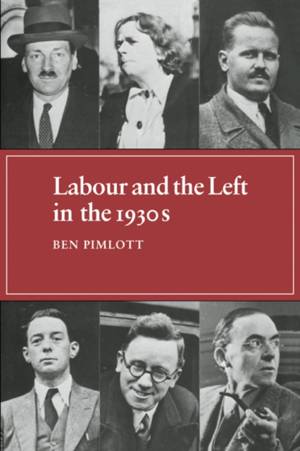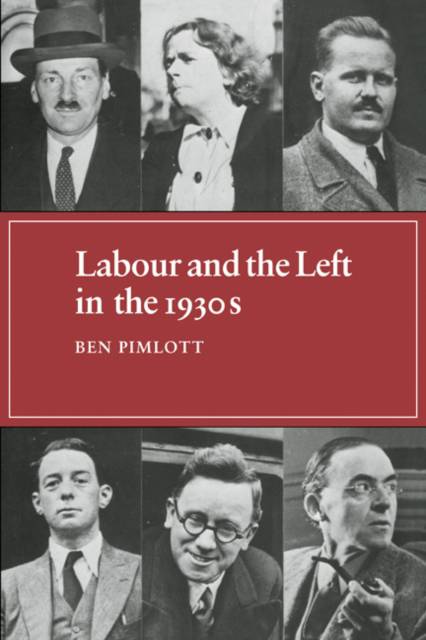
- Afhalen na 1 uur in een winkel met voorraad
- Gratis thuislevering in België vanaf € 30
- Ruim aanbod met 7 miljoen producten
- Afhalen na 1 uur in een winkel met voorraad
- Gratis thuislevering in België vanaf € 30
- Ruim aanbod met 7 miljoen producten
Zoeken
Omschrijving
The 1930s was the decade of the Jarrow March and the International Brigade - the 'Red Decade' of literary imagination. Yet there has seldom been a time when the influence of the British Left has been at a lower ebb. Why was this? In this book Ben Pimlott suggests answers, and challenges established myths about left-wing politics during a crucial period. Pimlott's study is concerned with the relationship between ideas and political action. The author is interested in the distinction which can be drawn between 'expressive' and 'instrumental' approaches to political behaviour, and a central theme is that the 'expressive' politics of some sections of the Left had an ironic effect of hindering the achievement of widely shared goals.
Specificaties
Betrokkenen
- Auteur(s):
- Uitgeverij:
Inhoud
- Aantal bladzijden:
- 272
- Taal:
- Engels
Eigenschappen
- Productcode (EAN):
- 9780521087650
- Verschijningsdatum:
- 11/12/2008
- Uitvoering:
- Paperback
- Formaat:
- Trade paperback (VS)
- Afmetingen:
- 152 mm x 229 mm
- Gewicht:
- 403 g

Alleen bij Standaard Boekhandel
+ 121 punten op je klantenkaart van Standaard Boekhandel
Beoordelingen
We publiceren alleen reviews die voldoen aan de voorwaarden voor reviews. Bekijk onze voorwaarden voor reviews.











